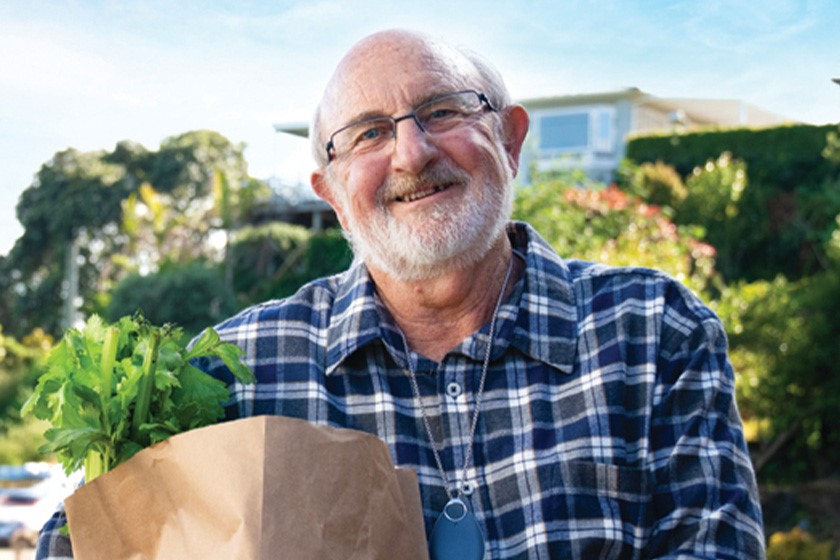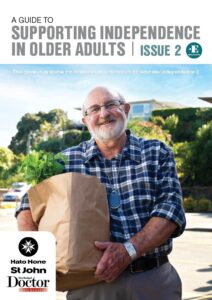
Living in their own home can give older adults a sense of control over their lives and enables them to stay connected with friends, family and the community. It can also help reinforce the feelings of freedom and purpose, and help them continue to feel positively about themselves.
However, as they age, older adults can become more at risk of future medical events, such as accidents, cardiovascular issues and respiratory concerns. These events, as well as ongoing chronic conditions, can threaten their independence, especially if they live alone and are unable to get the help they might need.
As a health-care professional, you can support your patients’ independence by ensuring that appropriate safeguards are in place.
The second guide to supporting independence in older adults
In this new guide, several articles have been assembled about the issues facing older adults, drawn from information originally published by New Zealand Doctor Rata Aotearoa. This is the second guide in the series ‘Supporting Independence In Older Adults’, and has been compiled in partnership with Hato Hone St John and Dr Ngaire Kerse, president of the New Zealand Association of Gerontology and the Joyce Cook Chair in Ageing Well (University of Auckland).
Topics covered in the new guide include:
Minimising harm from falls: Falls in older adults accounted for 76% of trauma admissions (versus 40% in younger adults) in an analysis of Auckland City Hospital’s trauma database.1 This article explores what you can do to help your older patients at risk of a fall to keep their independence.
Prescribing hobbies to promote independence and wellbeing: Older people will come to you for their pills and their injuries, but they are less likely to come for loneliness and misery. This is where empathy, expertise in medical management and advocacy can really make a difference.
The impact of CVD on independence: While cardiovascular disease (CVD) is the leading cause of death globally, it is also a major threat to function, independence and quality of life,2 which are all important health priorities for older adults.3
The benefits of exercise for healthy ageing: For older people, physical exercise tends to decline in later years but is more likely undertaken if in a social context, and prescribing it works. The question remains: how much exercise and what type is best?
This guide is intended to serve as a useful resource as you consider how to support the independence that your older patients desire.
Download this FREE guide
An electronic copy in PDF form can be downloaded without charge here:
https://www.nzdoctor.co.nz/educate/independence-2
P.S: The first guide is still available and can be downloaded here:
https://www.nzdoctor.co.nz/educate/independence
References:
- Fairfax LM, et al. An ageing trauma population: The Auckland experience. NZ Med J. 2015;128(1414):36-43.
- Murphy E, et al. Atherosclerotic cardiovascular disease prevention in the older adult: Part 2. 2023: 67-138.
- Goyal P, et al. Geriatric Cardiology: Coming of age. JACC Adv. 2022;1(3).
This advertising content was paid for by Hato Hone St John. Hosted content may not represent the views of Kaitiaki Nursing New Zealand or the New Zealand Nurses Organisation.





